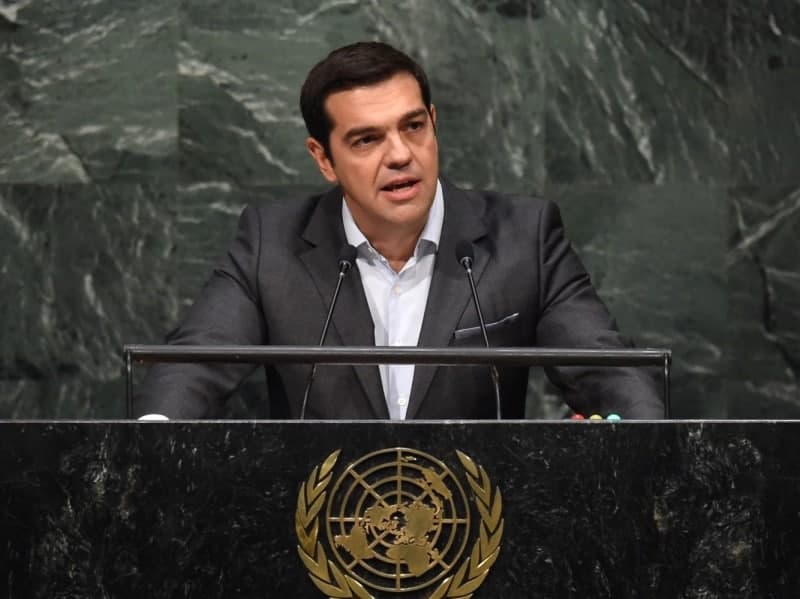
Greece's Prime Minister Alexis Tsipras addressed the United Nations General Assembly in New York on Monday reminding the world that over 1 million migrants and refugees passed through the country even when its northern borders were closed through the unilateral actions of other neighbouring countries.
Tsipras who reminded his audience that despite the financial crisis and the difficulties the Greek people faced on a daily basis, they had responded to the humanitarian crisis with great compassion and humanity.
Tsipras warned that unless the refugee crisis is addressed collectively ‘’the social and political repercussions will be felt everywhere.’’
"We face it as we strive to support the roughly 60,000 refugees trapped in Greece, as well as those that continue to come. Since our Asylum Service - which did not even exist three years ago - is handling the fourth largest number of asylum requests in Europe. Since our authorities, along with the European and Turkish authorities, are striving to implement the difficult but necessary EU-Turkey agreement. An agreement that led to a drastic reduction in flows and - most importantly – the number of deaths in the Aegean. An agreement that replaces the irregular, dangerous route to Europe with a legal route via the resettlement process," Tsipras said.
Greece's efforts, both to guard its borders and reinforce its asylum service, could only succeed if there was solidarity and the responsibilities were shared, he added.
"The commitments made to Greece must be adhered to. Our Asylum Service must be supported with many more European asylum staff. Many more refugees must be relocated from Greece to other European countries. We must reinforce our cooperation with Asian and African countries of origin and transit, so that we ensure that we can return those that do not merit international protection," he said.
As Europe struggled to cope with the greatest migration flows since the Second World War and the repercussions of poverty, repression and war in its wider neighbourhood, questions arose about whether it is still possible to safeguard social cohesion and the security of its citizens without violating international law and the Geneva Convention, Tsipras said.
"If we do not make a concerted effort to replace dangerous migration routes with others that are legal and humane, if we do not address the causes that generate migration, if we do not speed up the relocation of refugees to countries around the world that can receive them, then we will fail," Tsipras underlined.
Such a failure would then give room to nationalist and xenophobic forces to rise up for the first time since WWII, he warned.

